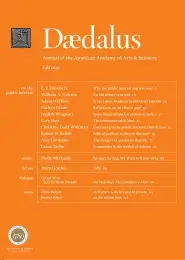The commonwealth: our public legacy
The Founders were, virtually to a person, steeped in the ideals and theories of the classic republics. Like John Adams and James Madison, Thomas Jefferson employed his knowledge of ancient Greek and Latin to study the original texts of the classical republican writers, including Herodotus, Thucydides, Plutarch, Polybius, and Cicero. America’s Founders had in mind to create a republic along classical lines, and to do so in a way never before tried, a republican federation with a reasonably strong central government.
But the foundation of our republic did not rest on formal structural elements alone. It also relied upon the disposition of the citizens who would inhabit it. Fortunately, according to the historian Gordon Wood, “all the notions of liberty, equality, and public virtue were indelible sentiments already graven upon the hearts of Americans who realized fully the fragility of the republican polity.” “Republicanism after all,” he continues, “involved the whole character of the society.”1
The character of this new society manifested itself in adherence to at least four republican principles: popular sovereignty, resistance to corruption, civic virtue, and a sense of the commonwealth. “We, the people,” the opening phrase of our Constitution, assumes the sovereignty of the people; indeed, today it is taken too much for granted. Corruption has unfortunately come to be seen as old-fashioned bribery rather than as it was originally conceived, as the act of placing special interests above the common good. For the purposes of this essay, I will focus on the last two: civic virtue, which we would today call ‘civic duty’ or citizen participation, and the sense of the commonwealth, from which civic virtue emerges.
Concern for the public interest, the sense of the commonwealth, is largely confined these days to high school civics courses, to the degree they are even offered. An effort by a political leader today to reawaken this ideal would be met with curiosity at best and a good deal of skepticism at worst. We find ourselves, after all, in an age of personal achievement, if not self-aggrandizement; with regard to money in particular, we inhabit an era of devil-take-the-hindmost. Anything suggesting collectivism, let alone collectivization, is highly suspect.
. . .
Endnotes
- 1Gordon S. Wood, The Creation of The American Republic: 1776–1787 (Chapel Hill: University of North Carolina Press, 1969).
